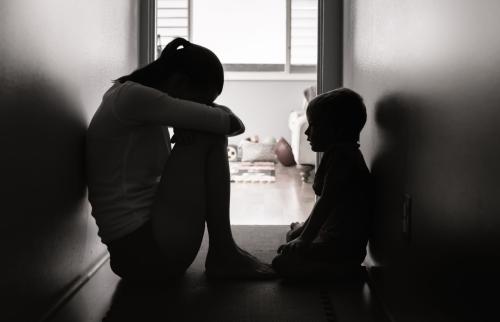The recent release of new government data showing yet another annual decline in the birthrates among teenagers was met with a collective yawn. Let’s face it, reductions in teenage pregnancy and teenage births are becoming old news. Starting in the early ’90s, rates of teenage pregnancy and births have been declining steadily—led by less sexual activity and better contraceptive use. But one critical question remains unanswered: Why are the rates declining?
New research suggests that one of the primary reasons is that teenagers are taking a more cautious attitude toward casual sex. A report recently released by the Urban Institute shows that today’s high school students are taking fewer health risks overall than a decade ago—including an unprecedented decline in the ’90s in the proportion of high school students who have had sex.
Not only are more teenagers delaying sex but those who are having sex are much more likely to use birth control. Both factors have contributed to the decline in pregnancy and birthrates. But it is more conservative attitudes about sex that are most newsworthy. If these attitudes spread, we could see further declines in teen births. Since half of first out-of-wedlock births occur among teenagers, and these births are the major contributor to the growth of single-parent families and to child poverty, efforts by parents, faith-based communities and the media to reinforce this growing sense of responsibility should be welcomed.
The Urban Institute report is only the most recent entry in a growing body of evidence that more teenagers are saying, “Sex can wait.” Consider the following:
* According to a Centers for Disease Control and Prevention report released in June, the percentage of high school boys who have had sex plummeted from 61 percent in 1990 to 52 percent in 1999. The proportion of high school girls reported having had sex dipped below half in 1999.
* Older teenagers seem to share in this more cautious attitude. A record low 40 percent of college freshmen (down from 52 percent in 1987) believe that “if two people really like each other, it’s all right for them to have sex even if they’ve known each other for a very short time,” according to an annual survey conducted by University of California at Los Angeles.
* Nearly two-thirds of teenagers who have had sex wish they had waited longer, according to a just-released nationally representative poll conducted for the National Campaign to Prevent Teen Pregnancy.
* Perhaps most surprising, nearly six in 10 teenagers say sex is not acceptable for high school-age teenagers, according to a National Campaign poll. Moreover, 93 percent of teenagers say that it is important for teenagers to be given a strong message from society that they should abstain from sex until they are at least out of high school.
All of this may come as a shock to parents and others who are fed a steady diet of bad news about teenagers. For example, consider yourself forgiven if—in the din of reporting on school shootings over the past several years—you did not know that violent behavior among students in the 1990s is actually on the decline. Likewise with teenage sex. From what you read in papers and see on TV about teenagers and sex you would hardly know that kids today are more responsible than their older brothers and sisters.
Now for the caveat. As with most good news about difficult social problems, celebrations are often premature. Despite the heartening declines in rates of teenage pregnancy and childbearing, the United States is still first where we should be last—leading the industrialized world in both categories. In fact, four out of 10 girls still get pregnant in this country before the age of 20. Obviously, much work remains to be done. In the meantime, however, let’s give teenagers the credit they deserve for increasingly making more responsible decisions about sex.

Commentary
Op-edMore Teens Just Say, ‘No’
September 5, 2000